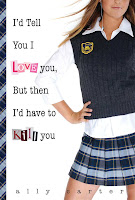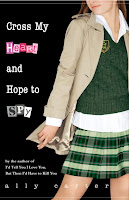STATUS: I did a lot of client editing this weekend. I’m actually going to leave the office early so I can concentrate at home on editing the next one in my queue. I only have three others after this one but my goal is to turnaround stuff within 2 weeks. It’s definitely been more like 3 and ugh, when it stretches to 4, then the guilt is tremendous.
What’s playing on the iPod right now? DON’T FEAR THE REAPER by Blue Oyster Cult
Last night I finished up an edit for a client manuscript and didn’t quite have the gumption to dive right into the next project as it was already after 9 p.m. Truly, it helps to be “fresh” when editing.
So I decided to catch up on reading my queries for about an hour (because I’m always the weak link in reviewing and responding promptly the ones set aside for me to read).
And I know, it sucks that I was tired when I started to review them but hey, that’s not unusual. Agents squeeze in query reading when they’ve got a spare 15 or 30 minutes otherwise it won’t get done.
So yes, I wasn’t at optimum when I read, and here are some things I noticed.
1. I had 120 queries to review as it had been almost three weeks since I had checked my review folder to read what Sara had set aside for me. By the time I had whittled the pile down to 40 email queries remaining, I was fighting the glaze factor. What is the glaze factor? The point of diminishing returns in reading. When I’m fresher, I read better and if I find a query confusing, I’m willing to muddle through and figure out what the writer might be attempting to say (although I usually still just pass). When the glaze factor hits, doing that becomes harder. It’s not that I won’t reread the query, because I will. I’ll stop, shake my head, start from the beginning. However, if I’m still glazing over after the first paragraph and struggling to figure out the query’s storyline, I’ll give up.
I highlight this just to reiterate how important it is to nail that query letter. When I hit the point of diminishing returns and I read a really solid, well-written query, it’s almost an auto yes to ask for sample pages because I’m just so pleased I didn’t have to work extra on it.
And just another FYI—the glaze factor can hit SF&F queries harder as I find writers will often ramble about world building in their queries. Short, succinct, and well done should be your mantra.
2. I’m not fond of queries that sound like the novel is simply a recipe. Add a dash of an intriguing hero mixed with a pinch of a sarcastic heroine (or what have you as I’m making this up). I find that it doesn’t let me evaluate the story of the query very accurately so I often just pass on asking for sample pages. I do try and guess what I think the story would be but I’d just rather the writer described it without the recipe gimmick. I realize this is a personal preference and other agents might feel quite differently.


